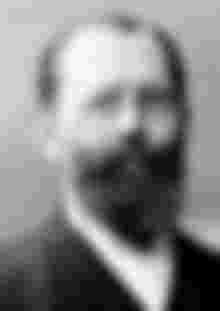Hello friends.. Good morning
I am writing a new article about:
/ Father of Sugar Chemistry //
// Nobel Laureate Biochemist //
Herman Emil Fischer
Birthday tribute
Panchanan Mandal 09102020
Emil Fischer's discovery of the lock and key theory we read about in encyclopedias at the secondary level. However, from this discovery, the whole world knows him for his research on sugars and purines. While a professor at Erlangen University, Fischer studied the composition of tea, coffee, and cocoa, and established a new synthetic approach to the composition of these substances. However, Fischer gained the most fame for his research on purine and sugar chemistry. He did this research between 182 and 1906. This study proves that plant adenine, xanthine, caffeine, uric acid found in animal feces, guanine সমস্ত all belong to the same class. The other is available from any one of them. They are similar to the various hydroxyls and amines in a basic system formed by the nitrogen cycle so that molecular structures like urea exist. He named this first basic system purine in 184 and synthesized it in 1896. Between 182 and 1798, his research led to the development of a number of synthetic substances that resemble naturally occurring substances.

In 184, Fischer began his famous research on sugar chemistry, which gave a new dimension to the knowledge of these substances and took them to a new height. The aldehyde signal of glucose was known to scientists even before 180, but Fisher established it through the conversion process. Such as the oxidation of aldonic acid and the action of phenyl-hydrogen which he invented and made possible the formation of phenyl-hydrogen. He also established the relationship between glucose, fructose and mannose in 18. In 1890, he established the sugar molecule and stereo chemistry through the ememerization of gluconic and manoic acids. Between 1891 and 1894, Fischer discovered the stereo chemical configurations of all known sugars, and the scientist Jacobus was able to accurately predict their equivalents by applying Henricus' asymmetric carbon atom theory. Its biggest success is the synthesis of glucose, fructose and mannose from glycerol.
Between 1899 and 1908, Fischer made significant contributions to the world of protein knowledge. He explored effective and analytical methods for the separation and identification of individual amino acids. In doing so, he discovered two new types of amino acids called proline and oxyproline. He studied the synthesis of proteins to combine different amino acids. He discovered a bond that binds proteins together in a chain structure. This bond is called peptide bond. Through this he later discovered di-peptide, tri-peptide and poly-peptide bonds. In 1901, Fischer was able to synthesize glycil-glycine from the di-peptide. This year he published his research on the hydrolysis of milk whey. This study and its subsequent research made it possible to better understand the structure of proteins. This is the basis of his later research on proteins.
While in Munich, Fischer studied his cousin Otto Fischer's hydrazine. They discovered and proved new theories about the composition of special pigments derived from trifenyl methane.
In addition to the aforementioned research, Fisher studied enzymes and chemicals present in lichens. He also studied the chemical composition of tannins used in tanning leather. Towards the end of his life, Fischer also studied fat. In 1890, he proposed the "lock-key theory" to observe the interaction of enzymes, although later research in this regard supported his model for all enzymes. Fischer has become famous for his research on sugar chemistry, biosynthesis of glucose, purines.
Hermann Emil Fischer (October 9, 1852 - July 15, 1919) was a German chemist. He was awarded the Nobel Prize in Chemistry in 1902 for his research on carbohydrates. In 185, he developed phenyl hydrogen, which reacts with aldehydes and ketones to produce hydrogens with a specific melting point. He made important contributions to the chemistry of sugar using this reagent. He has been called the "father of sugar chemistry" for his extensive contributions to the synthesis and synthesis of sugars. He has also made significant contributions to the chemistry of proteins and pigments.
Herman Emil Fischer was born in Euskirchen, Germany. His father Chinel is a businessman. After graduation he wanted to study natural sciences. But her father forced her to get involved in the family business. He was admitted to Fisher Forest University in 182, and soon after he was re-admitted to the University of Strasbourg. Fischer received his doctorate in 184 and began his career at the university.
In 175, Fischer succeeded another German scientist, von Liebig, at the University of Munich, and he was appointed assistant professor of biochemistry at the university. In 18 Fisher was appointed assistant professor of analytical chemistry. In the same year, he was invited to join Chapel University as chairman of the Department of Chemistry, but he declined the invitation. In 181 he was appointed professor of chemistry at the University of Erlangen, during which time he became financially well-off. In 1855 he accepted an invitation to join the University of Wজrzburg as professor of chemistry, and remained at the university until 182. He later became chairman of chemistry. W. He replaced Hoffman and held the position until 1919.
Fischer received honorary doctorates from Cristiana University in England, University of Manchester, and University of Brussels for his contributions. He was awarded the Prussian Order of Merit. In 1902, Fischer won the Nobel Prize in Chemistry for his contributions to the chemistry of sugar and purine synthesis.
Various chemical reactions and concepts have been named after Fischer
Fisher indole synthesis
Fisher projection
Fischer oxazole synthesis
Fisher peptide synthesis
Fisher synthesis of phenylhydrogen and oxazole
Fisher reduction
Fisher-Spear Asterization
Fear glycosidation
After Fischer's death in 1919, the German Chemical Society introduced the Emil Fischer Memorial Medal.
We pay our respects to Nobel Prize-winning scientist Herman Emil Fischer (October 9, 1852 - July 15, 1919).
Thanks for reading..

Nice...plz back